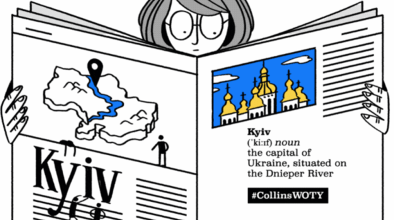This is a guest post by Steve Krajewski from English Coach Online on the topic of national identity and gaining dual citizenship.
Steve writes texts based on his own life experiences and shares them with students. His texts are packed with phrases and collocations that are common in spoken English.
For this post, Steve decided to focus on a text called ‘A long time coming’. This text will enable students to discuss whether they’ve ever done a family tree, what they know about their ancestors and to what extent gaining dual citizenship would have an impact on their lives.
Skills practiced include listening for gist, guessing the meanings of words from context and scanning the text for details.
__________
Download the teacher’s notes and the student handout below:
Download the audio file for the text here:
Long time coming audio.
Student Handout
A long time coming
As I have the right to obtain Polish citizenship by descent, I’ve been spending a great deal of time getting to grips with the Law on Polish citizenship and asking specialists for advice about which documents I need to submit for my application.
Obtaining Polish citizenship by descent is relatively straightforward. Considering the uncertainty surrounding Brexit, and the future rights of British citizens who wish to travel, live and work in the EU, holding dual citizenship might be very useful down the line. My father will apply for a Polish passport as well.
A few weeks ago, I hired a genealogist to carry out research on my Polish ancestors. I’ve learned some revealing things about my grandfather, such as the fact that the Soviets deported him and his family to Arkhangelsk, Russia, in 1940. My researcher has also discovered the names, birthplaces and educational backgrounds of my grandfather’s siblings and parents.
Applying for Polish citizenship has made me wonder why so many people don’t take an interest in their roots and ancestors. I certainly feel a little guilty for not visiting the villages connected with my ancestors when I lived in Poland on and off between 2006 and 2013.
So – what do you think? Should families research their family history and start a family tree together?
WORDS AND PHRASES
– a long time coming – arriving or happening after a lot of time has passed
(here I refer to my regrets that it took such a long time to learn about my
relatives)
– citizenship – the position or status of being a citizen of a particular
country
– (by) descent – the origin or background of a person in terms of family or
nationality
– get to grips (with something) – to start to deal with a problem, situation, or job that you have to do
– submit – to give or offer something for a decision to be made by others
– straightforward – uncomplicated and easy to do or understand
– uncertainty – a situation in which something is not known for sure
– surrounding – related to; around; involved with
– rights – a moral or legal entitlement to have or do something
– dual citizenship – the status of a person who is a legal citizen of two or more countries
– down the line – in the future
– genealogist – a person who traces or studies lines of family descent
– carry out research (on something) – a careful study of a subject (e.g. medical/historical/scientific), especially in order to discover new facts or information about it
– revealing – showing something that was not previously known or seen
– educational background – your educational background refers to all of the education you have received
– take an interest (in something) – be concerned or curious
– roots – family origins, or the particular place you come from and the experiences you have had living there
– ancestor – a person related to you who lived a long time ago (usually
before grandparents)
– (feel) guilty – to feel intense regret for something
– on and off – only for part of a period of time; not in a regular or
continuous way
– family tree – a diagram showing the relationship between people in several generations of a family
Read Steve’s posts related to ELT and language learning here: https://englishcoachonline.com/blog/







